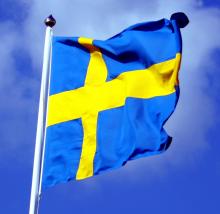After thousands of workers were laid off at the end of the 1980s, Malmö, a traditional industry town, was transformed into a model of sustainable city design. Pollution was replaced with energy sources which are 100% local and renewable. In addition to low energy consuming houses and buildings, Malmö is bike friendly, sporting 420 km of bike lanes for its residents.
The Augustenborg Ecocity in Malmö is the world's largest collective roof garden. Its 10,000 m2 of vegetation for its roof was implimented to address the problem of flooding in a sustainable fashion. In addition to protecting the city from flooding damage, it has given Malmö expansive green areas for its residents to enjoy, increases energy efficiency and improved access to recycling facilities.
As if this wasn't enough, Malmö was named Sweden's first Fairtrade City, making ethical consumption a cornerstone of its actions. This has caused many fair trade businesses to find a home in this sustainably progressive city.
For more information on sustainability in Malmö, check out their Malmö Green Map.

